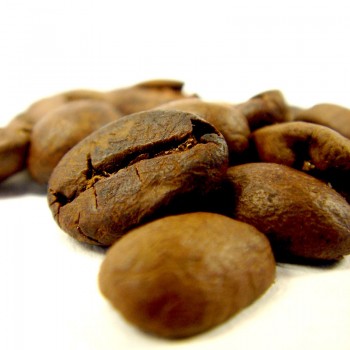Dr. Joe Esposito is an internationally leading nutritional researcher and lecturer on food nutrition and health. He has twenty-five years of experience that includes a corpus of publications, training seminars, and lectures designed to teach viable information on how to live a healthier lifestyle. The following is a transcription from a lecture he gave on the insidiousness of drinking coffee.
Coffee is an acid that robs your body of calcium. Not only does it enervate the body, but aside from cigarettes, it has more synthetic pesticides than any other product on the market today. In laymen’s terms, drinking coffee is equivalent to sucking down lots of unhealthy pesticides. One study I read said that a cup of coffee has more synthetic pesticides than consuming non-organic fruits and vegetables for an entire year. By now you might be thinking to yourself, “But Dr. Joe, I don’t drink regular coffee, I drink decaf.” So what is harmful about decaf? Well, if you buy commercially decaffeinated coffee, often the coffee companies will use turpentine and formaldehyde to take the caffeine out. In fact, there is no such thing as decaffeinated coffee anymore. Decaf just means that it has less caffeine than the original brand. They take some out, and it is considered decaffeinated. In most cases, a regular coffee made at home is going to have less caffeine than a decaffeinated coffee from a fancy coffee shop. So, you might want to consider these facts before you make your next purchase. Why then do we drink it? Energy? Coffee does not give you energy, however. Coffee actually prevents you from relaxing. There are certain receptor sites in the body called denisen receptor sites. Denisen is an amino acid that calms you down. Caffeine blocks these receptor sites, pre-venting the body from absorbing the denisen. So how does your body respond? It makes more denisen receptor sites, and you end up drinking more caffeine. For example, you start out drinking half a cup, which increases to one cup, and then eventually to ten cups. Therefore, the body needs increasingly more caffeine to perform at the same level of energy as it did when you only consumed small amounts of coffee. I had a patient named Yogi who drank 27 cups of coffee a day. As a result of his addiction, he lost his business. He lost his family; he lost practically every-thing because he was wired on caffeine. By far, the number one drug in the world is caffeine, particularly in the form of coffee. A famous man once said, “Forgive them, for they know not what they do.” So now you know; there are no more excuses.
The reason for which we print this publication is primarily to benefit our readers. We understand that we all share this same world. Thus, the better people we all become, better neighbors we will make. To properly perceive and understand the deep and complex truths about the wonderful creation, we need to have our minds and consciousness clear. Essentially, yoga is the path of truth lovers and seekers. Thus one of the important principles for serious yogis is to avoid intoxication. Intoxication pollutes the body and mind, skewing our perception. It hampers our ability to be objective. Intoxication melts down our resolution, determination to stay a course despite the possible difficulties encountered on the path to truth. Purity is the force. Coffee is an intoxicant.



Areya
Thank you for this little article. I am thinking that all of the impurities in food are the cause for psychological and physical ailments of mankind. Coffee disturbs my physical body tremendously and it’s hard to believe no one else experiences the same problem. Also, I’ve read that coffee creates a false sense of urgency which might explain why everyone is in a rush, particularly while driving.